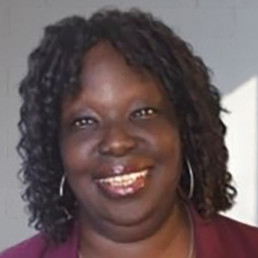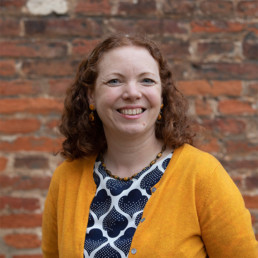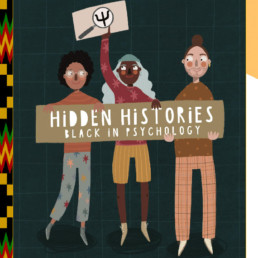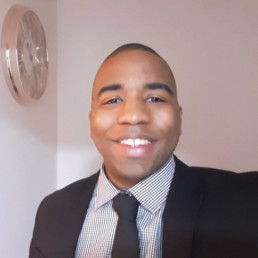Teach First and diversity in the teaching workforce

Written by Jenny Griffiths
Jenny is Teach First’s Research and Knowledge Manager. She is an expert in research related to teacher development and educational inequality, with a particular interest in understanding teacher retention. Prior to working at Teach First, Jenny achieved a BA (Hons) and MPhil from the University of Cambridge, and an MSc from Birkbeck, University of London. She taught History and Sociology and was a Head of Department in London schools for nearly a decade.
The proportion of postgraduate trainees reporting their ethnic group as belonging to an ethnic minority, has increased from 14% in 2015/16 to 22% in 2022/23 (UK Government, 2023). This is similar to the diversity of the working age population (21.8%) (UK Government, 2023). However, research by the National Foundation for Educational Research (NFER) shows that 60% of schools in England have no teachers from ethnic backgrounds other than white, and pupils – 35.7% of whom are from a minority ethnic background – are less likely to encounter teachers from black, mixed or other ethnic backgrounds (NFER, 2022). In fact, a significant number of the pupils in of schools will have no experience of a Black teacher throughout their time in school (Tereshchenko, Mills & Bradbury, 2020). We believe that this lack of representation, particularly in STEM (science, technology, engineering, maths) subjects, may make it harder for young Black pupils to engage with these subjects and pursue related careers.
Over the past 20 years Teach First have screened approximately 120,000 applications and assessed over 50,000 candidates for a place on our training programme. We are committed to increasing diversity in the teaching workforce and we’ve learnt a lot about how to root out bias in our application and assessment process, but we are committed to continuing to learn and improve.
As part of that work, along with Ambition Institute, we supported the NFER to carry out research looking at racial equality in the teacher workforce. This research showed that the most significant ethnic disparities are seen at the early stages of teacher’s careers, starting with ethnic minority people being over-represented among teaching applicants, but having a lower acceptance rate compared to other groups. We are pleased that Teach First are the only ITT provider where an ethnic minority group, those of mixed ethnicity backgrounds, has the highest acceptance rates. We also have less disparity in acceptance rates between ethnic groups than other providers, but we are continuing to work to reduce this gap still further (NFER, 2022).
Our recruitment strategy is designed to identify potential and reduce the risk of bias in our decisions, first by removing personal details in applications. The most significant change however was the introduction of contextual recruitment at the application stage. This allows us to take greater account of the different backgrounds of applicants in order to attempt to offset the impact of socioeconomic disadvantage. Applicants complete a short survey about the type of school they attended, whether they were eligible for free school meals, socioeconomic background and any significant disruption such as time in care, refugee status, or being a young carer. Whilst applicants must demonstrate clear evidence of our competencies, this screening helps us to understand where grades that are lower than our traditional entry level requirements are not necessarily reflective of potential. This approach has led to a 15% increase in offers to join the training programme overall and Black, Asian and Ethnic minority representation increase from 12% in 2017, to 18% in 2018 (after the introduction of contextual recruitment), and to 22% in 2019 with changes to our selection day processes.
This improvement notwithstanding, we know there remain particular challenges in attracting Black and other underrepresented groups into teaching, especially in STEM subjects. To address this we are working in partnership with Mission 44 to recruit and train Black STEM teachers to work in schools serving disadvantaged communities in England. Our initial research specifically looked at how to attract more STEM graduates from Black and mixed Black ethnic backgrounds into the teaching profession. Motivation to enter teaching varies individually, but also differs between social groups. A discrete choice experiment enabled us to test elements of our programme where we felt changes might have the biggest impact on recruitment.
What we found was that Black and mixed Black STEM graduates saw salary as being of high importance. We also found that location mattered: respondents indicated a clear preference for a guaranteed placement in London or within 60 minutes of their home address. Perhaps more interesting in terms of understanding changing work and lifestyle priorities, was the interest in lifestyle benefits, such as restaurant or gym discounts, as being likely to motivate more graduates to apply. Focus groups elaborated on some of these responses, indicating the importance of financial and societal pressures in decision making. In teaching where starting salaries are perceived to be relatively low, the importance of career progression was clear. Another finding central to our understanding and future work, was the concern of Black graduates about the level of diversity and inclusion in the schools where they would be working. There was a wariness of being in a school with an exclusively White teaching workforce, and despite clear desire to be a positive role model, these concerns posed a perceived risk to their wellbeing which needs to be addressed if we want to address ethnic inequalities in the teacher workforce in a sustainable manner.
You can download our report on this work to read the findings from the research in full and the recommendations proposed.
Despite some gains, we know that disparity remains and we remain committed to reviewing, re-evaluating and improving our practices to support diversity and inclusion in our education system, for teachers, schools and pupils.
Top Interview Tips for Neurodivergent Educators

Written by Lance Craving
Freelance Content Producer and Researcher
Interviewing for a job can be stressful for any educator, but neurodivergent candidates tend to face additional challenges that can make the process particularly tough. For example, people on the autism spectrum might face sensory issues if the interview environment is overwhelming. Those with dyslexia may struggle if asked to complete reading and writing-based tasks during an interview.
Providing that you prepare for an interview carefully, there’s no reason why you can’t put your best self forward and have a successful experience as a neurodivergent candidate. Here are three tips to help you prepare for your next interview.
https://unsplash.com/photos/eF7HN40WbAQ
1. Consider disclosing your neurodivergent status in advance
It isn’t essential to disclose your neurodivergent status to a potential employer, but it can be incredibly helpful to do so if you require accommodations for the interview. It might also help you to feel more relaxed and confident in the interview if you don’t feel compelled to hide the fact that you’re neurodivergent. Many people worry that disclosing before an interview could lead to discrimination, but the Equality Act protects you against this. Employers are obliged to consider making reasonable adjustments for interviews when candidates request them, and they cannot discriminate against jobseekers with disabilities.
https://unsplash.com/photos/3iiR4ScIPjs
2. Use the STAR technique to give concise, meaningful answers
If you worry that you may talk too much or too little during an interview, or that you’ll lose track of the questions and fall off topic, the STAR technique could be useful. It helps you to structure answers to behavioural or competency-based questions to give concise examples of your experience and the results you’ve achieved. STAR stands for situation, task, action, results. You describe the context of your example, the task or challenge you had to resolve, the action you took to achieve the goal, and the outcome of your action. The STAR technique is a great way to answer questions like:
- Describe a time you resolved a conflict at work.
- Have you ever had to deal with a student safeguarding issue?
- What would you do if you noticed a colleague made an error?
https://unsplash.com/photos/9cd8qOgeNIY
3. Prepare questions of your own
Interviews go both ways. Employers want to find out if a candidate is the right fit for the job, and candidates want to find out if the job and workplace suits them. Most interviewers give candidates an opportunity to ask questions about the role and the working environment. This is a great opportunity for you to learn more about the job and determine whether the workplace seems supportive of neurodivergent employees. If you have a few questions prepared, this can help you to come across as confident and show that you’re already imagining how you would fit into the role.
Confidence is key to interview success
Unemployment amongst neurodivergent people is as high as 30 to 40%. If we’re to reduce these rates, it’s vital that neurodivergent people approach interviews and jobs with confidence. Doing so will help you to assert your additional accommodations to ensure your interview is as accessible and comfortable as possible. It will also help you to highlight the great strengths your neurodiversity brings that make you such a valuable educator and the right candidate for the job.
Are the Equality Laws fit for purpose?

Written by Shola Adewale Sandy
Shola is the proud author of the debut novel called ‘ICE, the trilogy’ which stands for I Can Explain, it’s her memoirs that follows her journey in the educational system as a black women professional and the importance of stopping systematic discrimination, unfortunately she has experienced and witnessed over the years in inner London schools.
When I first walked into a secondary school in inner London, as a black member of staff, I didn’t think anything of it, after all there were others there and they seemed to be doing fine on the surface… I rolled up my sleeves, I was committed, prepared and ready. To the best of my ability, I would do good by those students. I felt this was my calling in life…
I looked at the decorated reception and walked around the massive assembly hall. It was early in the morning, I was enjoying the silence, but excited at what was to come… this is where dreams and aspirations are developed for those young minds and maybe for me too…
Fast forward and they soon sprout up in Year 11, leaving to go out into the big wide world. Having gone through the school system knowing what equality, fairness and hard work really looks like. This is what we teach them, isn’t it?
So what happens, if you find yourself in a situation where you were not being paid the same as your white counterpart or given the same opportunities, despite being a dedicated and a hard working member of staff?
That was me! Can you imagine? I initially thought nothing more of it, after all we have laws to protect people like me in a work environment. I was not even in a union because I was so confident that fairness and common sense would prevail!
“This must be a minor mistake; it will get cleared up in no time!” I said to myself over and over again, as the years went by.
Before you all go for me, I am not generalising, but if you happen to be in a situation and the odds were against you like I was, being in front of such a cantankerous headteacher, what would be your choices?
Remember, you are reminded daily by the micro aggressions towards you, grating away at your skin, getting right to the very core of you. You are nothing more than a mere irritable speck on their shoe, that they can’t seem to get rid of. So where do you go from there, if you please…
Ignore and march on, hoping and praying things would improve – check
Informal discussion with line managers – check
Discussions with other school leaders – check
Union rep – check
Informal discussions and meetings with headteacher –check
Human Resources – check
Union rep again – check
School Governors – check
Formal meetings with headteacher – check
Headteacher’s Peers and other leaders in the community – check
Local Authority – check
Tribunal system – I can’t disclose everything here folks, you will have to read my memoir….
And all you can think of to do in-between!
What do I have to do to be treated fairly, was the question I kept asking myself? As I made my way through the above list.
For most people, their response probably would be:
” I can’t deal with this; I would have been straight out the door!”
Yeah right, I wish it was as easy as that! I was invested in those students for better or for worse! (It’s an unwritten contract when you work in those types of inner city schools)
“No way! I would have to be dragged away in chains screaming and protesting, I would not leave those students by choice!”
Anyway, it was the principle of the whole damn thing! After all, why did our forefathers sacrifice and suffer for, all those years ago, surely so we wouldn’t have too now!
Yes, leaving and getting a job in another school would have been an option, but that’s another conversation to be had. In reality, it is much harder to successfully achieve this, as we need that all important, crucial reference from your former headteacher! Could they be trusted to give you a glowing reference despite your differences, hmm, a lot of people might hesitate at leaving that in the hands of such a person! I know I certainly would!
When I look back, I realise that it is also the system to blame. Giving permission for gross misconduct to take place within Education, allowed that specific headteacher to have the confidence to treat me that way. Knowing profoundly, that they had the power and would ultimately get away with their treatment of me, especially with the support of their loyal allies.
Thankfully, not all headteachers are like this, but you only have to come across one in your lifetime as a black person and trust me you will never forget the experience in a hurry!
Acceptance: Still so much work to be done.

Written by Kelly Richens
Programme Director, BASCITT. BASCITT is proud to celebrate diversity and promote equality and inclusivity (see here)
Applying to train to teach is a daunting enough task; the whole construction of your personal statement and how it defines you, all of your work experience, your qualifications and who will be your referees. All wrapped up in the deep emotions of taking this huge step towards becoming a life-changer for young people.
If this wasn’t searching enough in terms of self-exploration and presenting yourself, there is a section that says ‘Criminal Record and Professional Misconduct’ in which an applicant can make any relevant declaration.
I had an email confirming an application in which there had been such a declaration. Imagine my horror when I opened the webpage to view the application and read: ‘I am unsure whether this is a safeguarding issue, however I feel it necessary to raise and protect myself and others from misunderstanding. I am transgender.’
A flood of emotions ensued: rage that this applicant had felt being transgender could be a safeguarding issue; sadness that whilst she wanted to share this information, she had chosen to include in in a section labelled ‘criminal record’; fear that there are groups of people without the psychological safety to just be who they are without recourse of judgement; and the smallest amount of pride that she had actually been brave to share at all.
So rather than my first conversation with this applicant about her potential qualities as a teacher, I had to have a difficult conversation of reassuring and coaching her that she was in safe hands with us. What a shame that we could not talk instantly about her joy of her subject, or why she was applying to us. Her being transgender was a huge distraction from this and that is wrong.
Whilst I reflect on this, and have since interviewed and offered a training place to this lovely individual, based on her merit, I am still left without an answer of how do we stop this happening again? Keep promoting inclusivity? Keep the courageous conversations going? Keep educating and keep that positive momentum going on how we can continue to aim for a world in which an individual does not fear themselves being viewed through a judgmental lens? Instead a place where everyone can be celebrated for who they are and what they have to offer our pupils.
Inclusive Hiring

Written by Andrew McGeehan
Andrew (he/him) is a trainer/consultant based in Singapore that loves talking about anything DEIJ related and/or cats!
Hiring and recruitment processes need to be reviewed and updated with a lens towards affirmative and inclusive hiring. This is not something that will happen naturally – organisations need to take concrete steps to make it happen. Read on for some tips from Trident!
Pre-Vacancy:
- Organisational Assessment/Analysis – one key component of inclusive and affirmative hiring is that an organisation needs to know what it is looking for. An assessment that highlights current staff demographics can help to identify gaps. This is usually done with an interest in specific identities, such as gender, nationality, race/ethnicity, and age. However, it is important to start looking at other variables as well, such as years of experience, seniority in the organisation, educational background, and salary. It’s possible to find that there is diverse array of experiences and identities in more junior staff, but that senior staff is still overrepresented by straight able-bodied men of majority racial identity. That overrepresentation could be due to those folks utilising their own networks when hiring at all levels, which usually yields people of similar mindset and identity.
The assessment will allow you to ask questions such as “why aren’t we getting applicants from neurodiverse people for senior roles?” “why are all of our out LGBTQ staff not getting promoted beyond middle management?” “how can we appeal to the broadest range of candidates with each vacancy we have?”
- Job Descriptions – it’s time to take a good hard look at the way that positions are communicated to potential candidates. Research has demonstrated that certain words in JDs may encourage/discourage folks of different identities from applying. The inclusion of a non-discrimination statement may encourage folks from underrepresented identities to apply. Including information about insurance coverage, employee networks, commitments to inclusive workspaces, and flexible/hybrid working also encourage people with a variety of experiences and backgrounds to become interested. The exclusion of these items will leave people asking themselves whether or not the job is for them.
For instance, candidates who are part of the LGBTQ community would want to know upfront whether insurance policies extended to same-gender unmarried partners. Providing this information ahead of time would encourage members of this community to see themselves in that particular role; while omitting it (or not having same-gender partner benefits) would discourage this community.
- Diversifying networks for referral – If the same networks are utilised repeatedly when searching for candidates, the same candidate profile will keep showing up. Ask around to identify what kinds of new networks haven’t been tapped into. Many industries have outside organisations dedicated to supporting folks of underrepresented identities. Google is a good friend here! Search for “women in STEM organisation” “LGBTQ bankers network” “people with disabilities in Education” or whatever is relevant for your organisation. Many of these orgs have job boards on their websites and that is a great way to diversify the candidates that will apply.
Simply relying on current employee networks and/or 1-2 major networks in the industry will not diversify the hiring pool. Think outside the box and post the job listing in as many locations as is feasible in order to get the greatest variety of applicants.
Once a vacancy is open and accepting candidates:
- Resume/CV vetting & review – Unconscious bias in the review process is an undeniable reality that needs to be addressed. Study after study in various industries has revealed that just seeing someone’s name will alter perceptions of their hirability, competence, and experience. Unsurprisingly, women, racial/ethnic minorities, and folks who mention being LGBTQ or having disabilities in their resumes/CVs are viewed less favourably than those who don’t. Shielding first reviewers from names (and possibly educational background- there is also bias towards institutions/former workplaces with name recognition) can reduce the chances of unconscious bias playing a role in vetting candidates. Bias can also be reduced if each resume is vetted by 2 folks or candidates are grouped in a variety of ways.
For the greatest variety in an applicant pool, vetting should be done using a holistic rubric and approach. Simply creating a checklist for years of experience, educational level attained, and previous responsibilities again ensures that the pool will remain similar to staff that are already employed at the organisation. It’s important to consider broad categories as well as transferable skills. This doesn’t mean to interview every candidate, but there are many great candidates that are cut out due to rigid checklists and criteria that often cater to majority experiences.
- Interview questions & process – The interview process will tell candidates a lot about the kind of organisation they may be entering. Interview teams should meet prior to any interview. Standard questions (perhaps with some room for deviation towards the end of interview) are a must. I have been part of interview processes where each interview felt completely different; this makes it extremely difficult to compare candidates to one another. A good fusion could be having 30 minutes of standard questions and 30 minutes of candidate-specific questions.
Questions should focus on the candidates’ skills and competencies, as well as getting to know who they are (within reason). It’s important to vet questions for anything that may feel non-inclusive or use non-inclusive language. For instance, asking candidates if they are married, have kids, want to have kids, have been divorced, etc should be strictly no-gos. This is not only intrusive to the candidate, but also can feel non-inclusive for LGBTQ folks; asking about children is often only asked towards women and can set the tone that the workplace is not parent-friendly.
There are many ways to make interviews more inclusive and welcoming. One suggestion I will always give is to provide candidates questions in a written format. I’ve had interviews where I walked in the door and was given the list of questions. This allowed me to follow along, review the question if I didn’t hear it well or got confused, and pace myself with responses. It is also more inclusive for those who may have difficulties with hearing or are visual learners. Depending on the organisation, giving candidates options to have written questions in a different language may be relevant too.
- Interview panels – The makeup of an interview panel will impact the way that the candidate views the organisation. Walking into an interview and seeing people who all seem to have the same identity/background will make candidates feel less confident and it will be difficult for them to see themselves in the organisation. This doesn’t mean every panel needs to have every identity represented; but a variety of perspectives will also help ensure that unconscious bias isn’t creeping into decision making and treatment of the candidates.
Panels made up of folks with similar background/ identities will respond more strongly to candidates that also share those identities. Including folks at various levels of the hierarchy, different genders, different backgrounds, and different communication styles will create situations in which the candidates will get a more well-rounded experience and be seen from various perspectives. Unconscious bias is also something that is easier to notice in others, so a mixed-identity/background panel will also be able to monitor itself for this.
Post interview process:
- Decision-making panels – Similar to interview panels, decisions-makers should also represent a range of identities, roles, backgrounds, and experience levels. This again helps to ensure that decisions aren’t made based on a group with a very similar outlook or set of perspectives. When making a final decision, it can be helpful to review current staff demographics and make-up on that particular team. This can help identify gaps in identity, skill set, type of experience, or any other benefit that the new hire can bring to the team. In general, having multiple staff be part of final decision-making is a good idea- leaving it up to the full discretion of one person allows for bias, stereotypes, and personal connections to distort the process.
- Follow up – Inclusive and affirmative hiring can also include follow-up conversations, such as providing detailed and specific feedback to candidates who were not selected. For candidates who are selected, sharing immediately about the opportunities they will have in the organisation, such as same-sex partner benefits, access to employee networks, a mentoring program for women, parental leave packages, and whatever else the organisation offers can be a strong way to demonstrate the commitment to inclusion and help folks to feel connected to the organisation right away.
- Mindset – Throughout all the above ideas, keeping an open and inclusive mindset is key. Inclusion may feel difficult at first, because many folks are not used to thinking in this way- try not to be deterred! The benefits far outweigh the potential challenges. Remember that the intention is to find the candidates who intersect as highly qualified for the role and for whatever contributions they can further bring to the team. This additional contribution may be in the form of their identity, their unique skillset, experience in another industry, or any other number of things.
To connect this back to my opening example, I felt that candidates 1 and 2 had further contributions in terms of being able to connect with a specific demographic of student that needed it. As there were already many other staff & faculty with candidate 3’s demographics, the need wasn’t as strong there. For me, that meant the additional push factor to higher them wasn’t present in the same way that it was for the first two candidates.
To sum up, inclusive hiring doesn’t just happen. It needs to be thought about intentionally and thoroughly. There are many ways to ensure that JDs, resume vetting, interview processes and follow ups are done in ways that are affirming and welcoming to all candidates, regardless of identity. This will help to ensure that most wide-ranging candidate pool is included in searches, which will yield more diverse teams; this in turn will bring more creativity, experiences, and connection to the organisation as a whole and help it to thrive.
Leaders Like Us

Written by Emily Norman
Emily Norman is the Head of Curriculum and Inclusion for the Church of England’s Education Office. She was formerly a headteacher in central London, an RE consultant and SIAMS inspector.
Our plan to improve representation in school leadership – Church of England Foundation for Educational Leadership
“I really do think that it’s critical that teaching is an inclusive profession. Schools and their leadership teams should reflect their communities and their pupils and I’m absolutely determined to see improvements. I think we need inspiring teachers to represent and motivate pupils from all walks of life.”
Nadhim Zahawi, previous Secretary of State for Education (9.10.21)
This autumn, the Church of England’s Education Office is embarking upon an ambitious project to radically increase the representation of school leaders from UKME backgrounds over the next five years. It is called ‘Leaders Like Us’.
Currently, there are less than 400 headteachers in English schools from UKME backgrounds although there are close to 3 million students. That is a ratio of 1 headteacher to over 7,000 UKME students (data from Professor Paul Miller, Institute for Equity). The effect of this is that the children and young people in our education system are not seeing themselves reflected in the leadership of their schools. This affects their ability to view themselves as future teachers or school leaders, and decisions about the curriculum they study, pedagogical approaches applied in the classroom, how their behaviour and wellbeing are supported and/or managed are all made by teachers and leaders without their lived experience.
Research tells us that the impact of teacher and school leader representation on students is significant; their attainment and likelihood of progressing to tertiary education is exponentially higher. Their exclusion and suspension rates decrease. Their future aspirations are higher because ‘if you can see it, you can be it’. (A phrase used, for example to describe the impact Nichelle Nichols’ NASA campaign had on Dr Mae Jemison – the first black female astronaut in space).
And why is this so urgent and necessary?
Data released this summer about school exclusions shows that pupils from a Gypsy and Roma background (18 in every 10,000), followed by those from mixed white and black Caribbean backgrounds (12 in every 10,000) had the highest rates of exclusion in the country. This is much higher than the rates of their White British peers (5 in every 10,00). Permanent exclusions and suspensions in England, Academic Year 2020/21 – Explore education statistics – GOV.UK (explore-education-statistics.service.gov.uk)
Attainment in this country also shows similar patterns, with White British students attaining at national average in primary SATs tests (65%) and GCSE Progress 8 (50%) while black Caribbean and mixed white/ black Caribbean students achieving below average (56% and 59% respectively for SATs and 44% for Progress 8). https://www.ethnicity-facts-figures.service.gov.uk/
Knowing the significant impact that representation amongst teachers and school leaders can have, we have a moral imperative to secure significant increases that result in the 1/3 of pupils who come from UKME backgrounds seeing themselves reflected in the classroom.
Is this only about improving outcomes for pupils?
The Church of England’s vision for schools – a vision for human flourishing and ‘life in all its fullness’ – is absolutely for the pupils in our education sector. Each and every one of them. But it is also a vision for flourishing staff and adults. Our UKME teachers and leaders should have every possible opportunity to progress, achieve and thrive in our schools.
Data, however, shows that teachers from UKME backgrounds are much less likely to progress to senior positions within their schools than their white peers, becoming increasingly under-represented the further up the ladder you go. The recent NFER report highlighted these issues, showing that rather than improving over the last few years (given all the DEI initiatives taking place), there has in fact been a decline in representation: Racial equality in the teacher workforce – NFER
We must do all we can to nurture the ambition and confidence of our UKME teachers, whilst intentionally removing the barriers and obstacles in their way, so that they can develop into leadership roles that enable them to flourish. We must proactively create school cultures which enable progression, the ability to excel and shine and be seen, places of true belonging. That goes far beyond mission statements, slogans and DEI action plans; it is about living and breathing diversity and inclusion – rooted in the core belief that we belong together and until everyone is flourishing, no one truly does.
Furthermore, research shows us what we probably already know – that diverse teams drive up effectiveness, creativity and innovation within their organisations (see Why Diverse Teams Are Smarter (hbr.org)), which can only be good for the education sector. Our pupils need to be taught by diverse teams. Our schools need to be led by diverse teams. Our society needs to be transformed by diverse teams.
So what can we do about it?
We know we have to address this issue with vigour and urgency. Our ‘Leaders Like Us’ programme seeks to double the existing number of headteachers from UKME backgrounds over the next five years. It utilises the research around what we know works in the recruitment, progression and retention of UKME school leaders (from e.g. Miller 2020), as well as our extensive networks of schools (the Church of England represents 22% of the sector nationally and up to a third when combined with the Catholic sector, with whom we now deliver the NPQs) from which we aim to recruit both participants and mentors to host and support those participants.
This isn’t to say it is just a church school programme for church school people! Like with all our programmes and networks, ‘Leaders Like Us’ is open to anyone who would like to learn and develop within a values-led environment which is built upon Christian foundations and is utterly committed to serving the common good.
The programme has four strands: access to accredited training (such as an NPQ or the excellent Aspiring Heads programme), shadowing an experienced headteacher in another context, mentoring to support progression and networking together as a cohort of leaders. It has been devised by successful UKME headteachers, drawing upon their own experience to devise a programme which is grounded in research.
Professor Paul Miller wrote in 2019: ‘Doing race equality in schools is serious business that requires courage and the moral use of power that extends beyond sympathising to taking actions.’
‘Leaders Like Us’ is our call to action for schools, dioceses and trusts all round the country to sponsor an applicant, talent-spot a future leader, apply to become a host and mentor and to commit to long-term culture change. To have the courage to go beyond sympathy and actually take action!
‘Leaders Like Us’ launches in January 2023. Applications are open now, and the deadline is 11th November 2022. www.cefel.org.uk/leaderslikeus/
Hidden Histories: Black in Psychology

Written by Sinmi Ekundayo and Parise Carmichael-Murphy
Sinmi is a Year 9 student with an avid interest in politics and humanities subjects.
Parise is a PhD Education student who is passionate about decolonising the curriculum and widening access to the psychological professions.
Hidden Histories: Black in Psychology celebrates the contributions of Black people to the field of psychology and its allied professions. It is an open resource for people of all ages who are interested in psychology’s past, present and future. The booklet encourages young people to develop critical thinking skills by exploring ideas of anti-racist psychology, social change and activism, race and racism across psychological practice, and racial disparities in mental health. It also introduces readers to the requirements and steps needed to pursue a career in psychology and highlights how a range of skills, qualifications, and experiences can inform and shape our interests and expertise in psychology.
Parise Carmichael-Murphy and Adam Danquah are co-authors of Hidden Histories: Black in Psychology; they developed the resource in the hope that it has the potential to inspire future generations of anti-racist psychologists. Sinmi Ekundayo is listed in the ‘Acknowledgements’ of Hidden Histories: Black in Psychology as one of many contributors who helped to support and develop the book.
Sinmi was invited to review Hidden Histories: Black in Psychology by her teacher Laura Morris. Sinmi took a printed copy of the booklet home and reviewed it over a few weeks. Sinmi provided some really insightful feedback that highlighted areas of interest and some spaces for improvement. Sinmi’s comments highlighted some of the terminology used that could be better explained and in response, we added the term ‘cultural competence’ to the glossary.
Next, Parise invited Sinmi to collaborate on a blog post to highlight Hidden Histories: Black in Psychology. Some of the feedback and comments from Sinmi’s review have been expanded on in this blog:
“The fact that African Psychology is such a new concept that I have never even heard of it is astounding. It seems so simple when you think critically, obviously the culture you grow up in will affect the way your psyche functions and will not align with a completely different culture’s way of interpreting the human mind. It’s fascinating! I love this booklet so much.
I’ve always felt a bit of alienation from psychology as it always felt like a very white field to go into and now I understand why. Honestly, if the goal of Hidden Histories: Black in Psychology is to get more Black students into psychology it will succeed. Hidden Histories: Black in Psychology introduces psychologists that are telling our stories and interpreting them in a way that feels personal.
The poem at the end by J.Chambers is beautifully written. I love the ‘Useful Links’ section at the end where they list all the organisations that were made for Black education by Black people, it makes me feel so hopeful, especially since I have first-hand experience with some of them. It’s good to know someone is looking out for us. A lot of the time I was stopping to look further into new ideas and people I was being introduced to.
I sincerely believe that keeping Hidden Histories: Black in Psychology out of the curriculum is a disservice to ourselves. It would help Black students feel a stronger connection to themselves and psychology and I believe it would endow non-Black students with a sense of cultural empathy. The exemplary Black psychologists introduced in the booklet would intrigue anyone, but especially young Black students (such as myself) who will finally see themselves reflected in a field that feels very exclusive to rich white men.
This booklet is tremendously helpful in increasing Black students’ confidence in their ability to succeed in psychology in a way that isn’t too distant or convoluted. I’d recommend this to everyone, regardless of race. It’s genuinely an interesting insight into psychology that anyone would be interested in.”
To read, download and share the Hidden Histories: Black in Psychology resource, please use the following link: https://gmhigher.ac.uk/resources/hidden-histories-black-in-psychology/
We thank Laura Morris, our teacher and friend, for supporting us both to connect and collaborate on this blog post. Laura is Head of Religious Studies and Citizenship at Cedar Mount Academy and has a whole-school responsibility for anti-discrimination.
Three Employee Rights Workers in Graduate Roles Should Be Aware Of

Written by Lance Craving
Freelance Content Producer and Researcher
Having graduated from university and/ or your teaching training pathway, now’s the time to apply your newfound knowledge to your first teaching role in the big wide world of work. Whilst this is an exciting time, it’s also a chapter of your life that involves lots of apprehension and perhaps anxiety around taking the next step.
There will be so many new challenges, and suddenly you’ll have to contend with all of the responsibilities that come with any form of employment. To make the transition a little easier, it’s essential that you are aware of your employee rights and any obligations your employer will have towards you, so you know what to expect. These may change as you undertake different roles, but for graduates, here are three things you need to know when starting your new job.
Written terms and conditions
If you have gone straight from school to university to a teacher training pathway, there’s a chance that your entry position in the school system could be your first experience of employment. If this is the case, you’re likely to be unfamiliar with employment contracts, so it’s vital that you familiarise yourself with what should be included in yours. If you’re ever unsure, speak to family members, student services or senior members of staff at your school to ensure nothing has been missed out, and you’re not being unfairly treated.
You may not have necessarily received anything in writing pertaining to your employment status, but there will still be a contract in place. The contract will detail all of the rights and obligations both yourself and your employer have to one another during your term of employment. It is important that you keep a copy of the contract to hand, to prevent any disputes further down the line.
Pension contributions
If you’ve just finished studying, chances are you won’t be worrying too much about your pension contributions – it’s a long time until you’ll see them again, after all. But even in the early stages of your career, it’s worth considering how you want to approach your pension payments, since the earlier you start, the longer you’ll have to save up for your retirement.
Most teachers who are working in state schools will be automatically enrolled into the Teachers’ Pension Scheme. This was set up to help secure the financial future of those working to educate the younger generations, but the scheme underwent a major review in 2015 which could affect what you’re entitled to. Be sure to check which terms apply to you to prevent any confusion further down the line.
Rest breaks
Whilst a teacher’s daily timetable will be structured slightly differently to a standard 9-5, you are still entitled to lunch and break times like workers in any other profession. As the amount of break time teachers have varies from school to school, you can expect to see your employer’s expectations outlined within your written contract.
Under the UK Government’s School Teachers’ Pay and Conditions Document (STPCD), teachers are entitled to at least one break every teaching day for a “reasonable length” of time. This typically equates to 20 minutes (but it can be more), which is often taken between 12pm and 2pm.
The British Army’s Diverse Resources for the New Term

Written by Eleanor Brown
Head of Education Marketing at Capita
The British Army has developed new resources to help students aged 11-16 build their understanding of why it is important to commemorate significant groups in the history of the British Army. Focusing on diversifying the curriculum, This resource pack features Women in the Army, LGBTQ+ Voices and Black History resources with links to PSHE, History and Citizenship.
Each of the resources are available for key awareness days in the school calendar and include ready-to-use lesson plans, assembly presentations, case studies and films to help students understand the changing roles of service people in the British Army throughout history, reflect on who we remember as a society or individuals and explore what it’s like to serve in the Army today. The resources are part of the British Army’s dedication to addressing the inequalities within the organisation and raising awareness of the contributions of service people both historically and now.
Women in the Army Resources
An excellent resource for International Women’s Day on March 8th, the Women in the Army resources have curriculum links to PSHE / Health and Wellbeing, Citizenship and History. The lesson plan offers interactive tasks to help young people to recognise and challenge harmful stereotypes and prejudice both at work and in society as a whole. Showcasing the significant roles women have played from the 1800s to today, the resources explore key terms such as feminism, gender and intersectionality, encouraging students to consider the evolving roles of women in the Army in the context of wider society.
The assembly slides and the film builds on these key themes, showcasing the contributions and accomplishments of women in the Army and reflecting on the stories we remember. The assembly brings a specific focus to the history of women in wartime and features empowering women including Captain Flora Sandes, who was the only woman to fight on the front line of WWI, and Adelaide Hall, a jazz singer who entertained troops in WWII and was the first Black performer to be given a long-term contract with the BBC.
LGBTQ+ Resources
Perfect for LGBT History Month 2020 in February, The LGBTQ+ Voices lesson resources show the progress made within the Army and in wider society with activities that celebrate the contributions of historical and current LGBTQ+ Army personnel, including WWI soldier Edward Brittain and Deborah Penny, the first trans soldier in the British Army. Students can also learn how they can be supportive of all LGBTQ+ people, and other groups and communities, through the allyship video resource.
By profiling six historical LGBTQ+ figures, such as the mathematician Alan Turing and poet Wilfred Owen, the assembly resource asks students to reflect on their contributions. This is followed by a film featuring current LGBTQ+ soldiers, addressing the significance of LGBTQ+ history to them and the progress that has been made by the Army to ensure everyone feels welcome.
Black History Resources
These Black History digital resources for Key Stages 3 and 4 include an assembly and lesson plan to help students understand the stories of Black British, African and Caribbean service people who have often been unfairly excluded from the history books and help students consider some of the reasons for and effects of these omissions.
The assembly resource profiles service people from throughout history, while the interactive lesson resources offer source materials to help students build core historical skills and explore the contributions and stories of Black Britons, West and East Africans and Caribbean service people during World War One. The resources also offer examples of the impact of the war on different Black women, documenting case studies of a Trinidadian, British and an East African (from the Tanzania-Malawi border region) woman.
Questions at the end of each resource help facilitate discussions that address the significance of Black History Month and studying Black History more broadly and how this relates to modern discussions on race and diversity, including reflections from current Black soldiers to help build student’s discussions.
All the British Army resources can be downloaded for free online at: https://apply.army.mod.uk/base/lessons
Aspiring Heads Leadership Summit Conference 2021

Written by Javay Welter
NPQ, MSc, Outstanding MFL teacher, public speaker, mentor and linguist.
On the 16th of October, I witnessed greatness. The Aspiring Heads Leadership Summit was phenomenal. Nadine and Ethan Bernard hosted a truly remarkable conference. Above all, this was the first leadership conference I had witnessed led by a current existing Black Headteacher, Nadine Bernard. Well done Nadine for your initiative, creating this platform and elevating future leaders. This was a pioneering conference, very timely and extremely forward-thinking.
The wide array of speakers in different fields provided a variety of perspectives and insights. Topics ranged from mentoring, strategic leadership to financial literacy. The speakers were all leaders and thought leaders in their respective fields. They shared their journey, resilience and barriers they had to overcome. The optional workshops were uplifting, insightful and edifying. I left feeling empowered, inspired and acquired so much wisdom.
The first keynote speaker Bose Onaboye, who is a business strategist and leader, spoke about finding your leadership style and being highly reflective. Leadership development is a process. She encapsulated that leadership is a journey and not a destination. Leaders are readers. Therefore, one must strive to keep developing oneself and undertake CPDs. I fully agree that leading is a journey, not just a title. We must strive for excellence.
Another charismatic speaker Karl Pupé, an educator and author, highlighted that we must step out of our comfort zone to grow. Leadership is not easy and we must embrace change to grow. We must embrace more black leaders in all walks of life and value their unique and valuable skill sets and contributions. He mentioned that his various previous jobs have helped to strengthen his behaviour management, for example, negotiation, conflict resolution and dealing with challenging behaviour. His book Action Hero Teacher: Classroom Management Made Simple is an exemplary book on behaviour management. A must-read for new teachers.
Diana Osagie, a former black Headteacher and CEO of Courageous Leadership focused on being a human first and a leader second. Well-being is key to longevity. If you do not have health, you cannot lead. Sayce Holmes Lewis, Founder and CEO of Mentivity advocated that we need more servant leaders rather than being ego-centric ones to promote positive change. We need to lead from the back like Nelson Mandela. Sayce passionately highlighted that positive black male role models are crucial and that Devon Hanson, a former black Headteacher acted as an inspiration. Lavinya Stennett, founder and CEO of the Black Curriculum pointed out that Black History should be incorporated in the national curriculum and that representation is vital to success.
The second keynote speaker, Dr Leroy Logan MBE who is a former Metropolitan Police superintendent. He was also the chair of the National Black Police Association and discussed fear. He eloquently commented that his father feared his career choice. His father suffered police brutality. However, he had seen black role models and police officers in Jamaica which inspired him and it was his calling. Leroy emphasised that he entered the police profession to make a positive contribution and to help change the Met. His book ‘Closing Ranks’ shares his incredible journey from humble beginnings to becoming one the first black police superintendent in the UK. Leroy faced many adversities, barriers and did not give up. Importantly, he had a dream just like Dr Martin Luther King Jr.
In conclusion, representation matters. Young pupils deserve a diverse education, inspiration and representation. Fundamentally, it is pivotal that they see leaders from diverse backgrounds to prepare them for the world of work. I believe that it would be beneficial to have more black and global majority leaders like Nadine Bernard leading conferences to elevate future generations and make a difference. Nadine has started a legacy. The next step is a follow-up conference.

